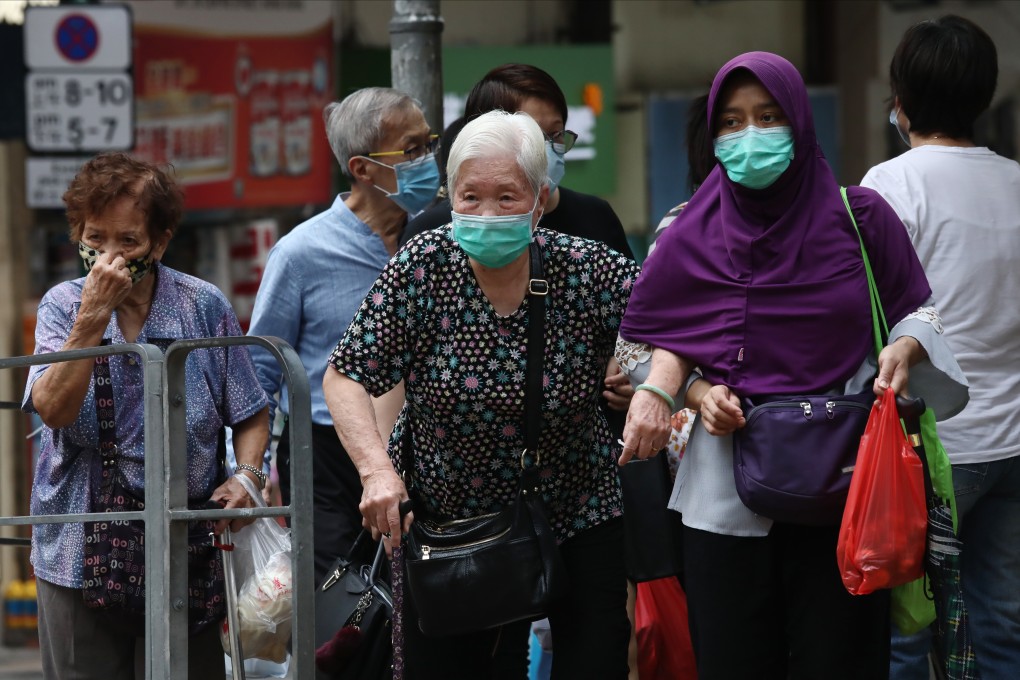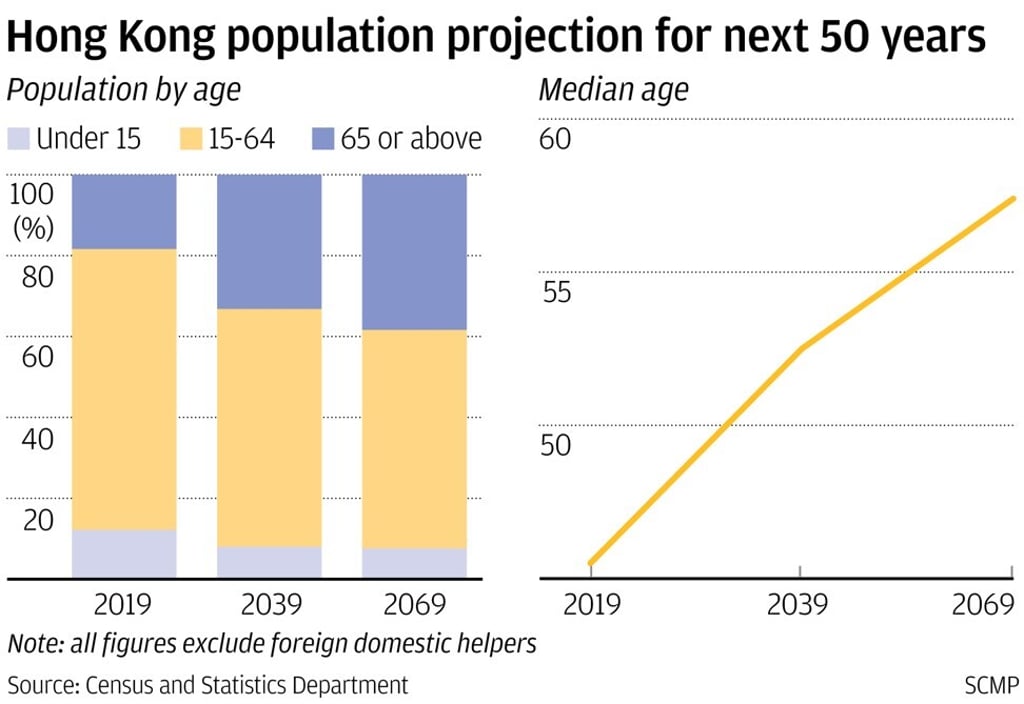Editorial | Ageing Hong Kong risks loss of competitive edge if it does not transform
- With the city’s population forecast to decline after 2041 through falling births and rising deaths, every effort must be made to ensure there are enough educated and trained people ready to work

Hong Kong needs to remain relevant to the nation, region and world if it is to grow and thrive rather than shrink and die. Covid-19, political divisions and efforts by the United States and its allies to decouple from China are only the latest challenges.
In painting a picture of a fast-greying society, the updated population projection report by the Census and Statistics Department estimates that numbers will rise only until 2041, after which there will be an annual 0.3 per cent decline brought about by the twin impacts of falling birth and rising death rates.
An economic and social transformation is necessary if the city is to maintain its competitive edge and vitality.
A consistent supply of young, skilled and talented workers has been the essential ingredient of economic growth for Hong Kong and elsewhere in East Asia. But fast-ageing demographics mean that workforces are getting older, the city’s median age last year being 45.5 years and that is predicted to rise to 52.5 in 2039 and 57.4 in 2069.
The number of people at the retirement age of 65 and older is expected to double to one-third of the population in the coming 20 years and account for 38.4 per cent in 50. The problem, as studies show, is that older workers are less productive than their younger counterparts, the most fruitful ages determined to be between 30 and 45.
Hong Kong’s circumstances are especially worrying, though; it has one of the world’s lowest birth rates and almost the smallest population share anywhere of children under the age of 15. Low birth rates are typical of mature economies, but the city has added stress factors, among them the high cost of housing, cramped flats and a challenging working environment.

